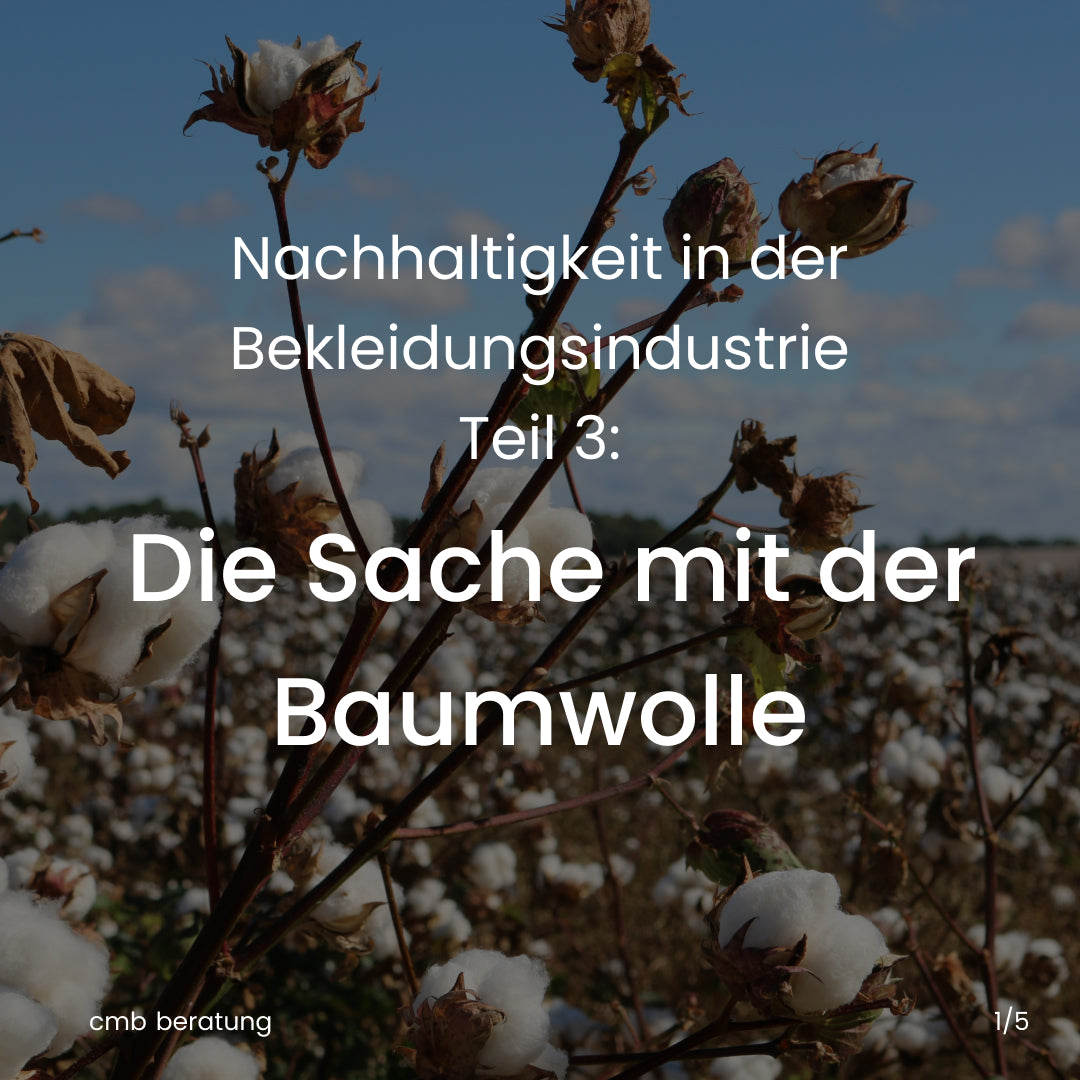Cotton has a positive image. It's considered natural, skin-friendly, and versatile. For many, it's the epitome of sustainable fashion. But a closer look at this raw material reveals that, unfortunately, it's not that simple.
Environmental impact of conventional cotton
Around 99% of global cotton production comes from conventional farming. Large quantities of pesticides and mineral fertilizers are used in this process. 16% of all insecticides used globally end up on cotton fields alone – even though they only account for about 2.5% of the total agricultural area. These chemicals seep into the groundwater and contaminate entire areas in the producing countries. Sustainable farming is out of the question here.
Organic cotton: Better, but not a panacea
Synthetic chemicals are prohibited in organic farming, reducing environmental impact. Sounds good, but for the problem: Switching to organic is expensive and technically demanding. Many cotton farmers lack the knowledge, access to subsidies, or simply the resources to make the transition. And then there's the water consumption: Cotton is a thirsty plant, whether organic or conventional.
Alternatives? Not entirely unproblematic
Different materials bring different challenges. Clothing made from bamboo is often chemically processed into viscose. While recycled polyester saves resources, it creates new environmental problems due to microplastics released during washing.
What to do?
Cotton can't simply be eliminated from the fashion industry. But it must be used more consciously. The industry must move away from fast fashion and toward durable, high-quality clothing that won't end up in the recycling bin tomorrow. Clothing that's so durable it can be worn for many years.
And the consumers?
We, too, bear responsibility. Those who pay attention to quality, origin, and craftsmanship when purchasing are consciously choosing fewer, but better-quality clothes. Those who invest in a long-lasting garment today avoid unnecessary waste tomorrow – and make a decision FOR the environment.
Conclusion: Cotton isn't inherently bad. But how we handle it determines its sustainability. At BREDDY'S, we therefore consciously avoid cotton – for ecological and social reasons. There are better ways. And we're taking them.


